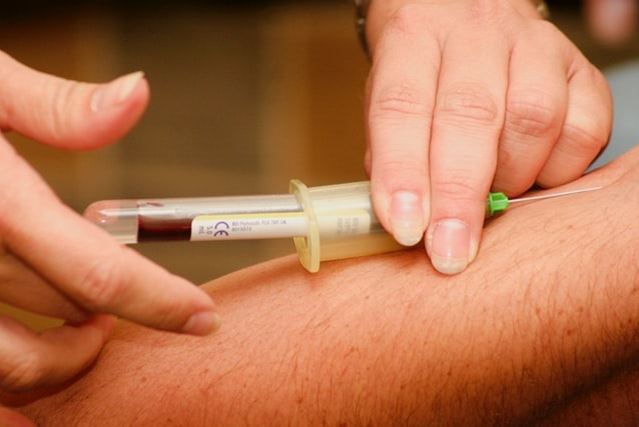Test Results
Investigations
Leighton Hospital provides a phlebotomy clinic (for taking blood) based at the Health Centre each morning of the week (Monday to Friday).
These clinics are available by pre-bookable appointment only. Please ask at reception for further details.
Blood tests and X-rays are also available at the following hospitals:
- Congleton War Memorial Hospital – 01260-294800
- Knutsford Community Hospital – 01565 757220
- Macclesfield District General Hospital – 01625 661493
Clinic times change from time to time – please obtain the current times from reception.

Results
If any further action is required following a blood test, the Health Centre will contact you directly. The Health Centre does not contact patients if the test results are normal or if no further action is required.
Patients who have registered for our Patient Facing (Online) Services can review their blood results online once the result has been returned to the Health Centre from the hospital and reviewed by your GP. Patients can also find out the result for any test by ringing 01477 533100 between 14:00-15:00, and selecting option 3 to be put through to the Results Line. To ensure patient confidentiality we only give test results to the patient concerned or, where the patient is aged under 16, to their parent or guardian.
Blood Tests
A blood test is when a sample of blood is taken for testing in a laboratory. Blood tests have a wide range of uses and are one of the most common types of medical test. For example, a blood test can be used to:
- assess your general state of health
- confirm the presence of a bacterial or viral infection
- see how well certain organs, such as the liver and kidneys, are functioning
A blood test usually involves the phlebotomist taking a blood sample from a blood vessel in your arm and the usual place for a sample is the inside of the elbow or wrist, where the veins are relatively close to the surface. Blood samples from children are most commonly taken from the back of the hand. The childs hand will be anaesthetised (numbed) with a special cream before the sample is taken.
You can find out more about blood tests, their purpose and the way they are performed on the NHS Choices website.
X-Rays
An X-ray is a widely used diagnostic test to examine the inside of the body. X-rays are a very effective way of detecting problems with bones, such as fractures. They can also often identify problems with soft tissue, such as pneumonia or breast cancer.
If you have an X-ray, you will be asked to lie on a table or stand against a surface so that the part of your body being X-rayed is between the X-ray tube and the photographic plate.
An X-ray is usually carried out by a radiographer, a healthcare professional who specialises in using imaging technology, such as X-rays and ultrasound scanners.
You can find out more about x-ray tests, how they are performed, their function and the risks by visiting the NHS Choices website.
Page created: 27 September 2021
